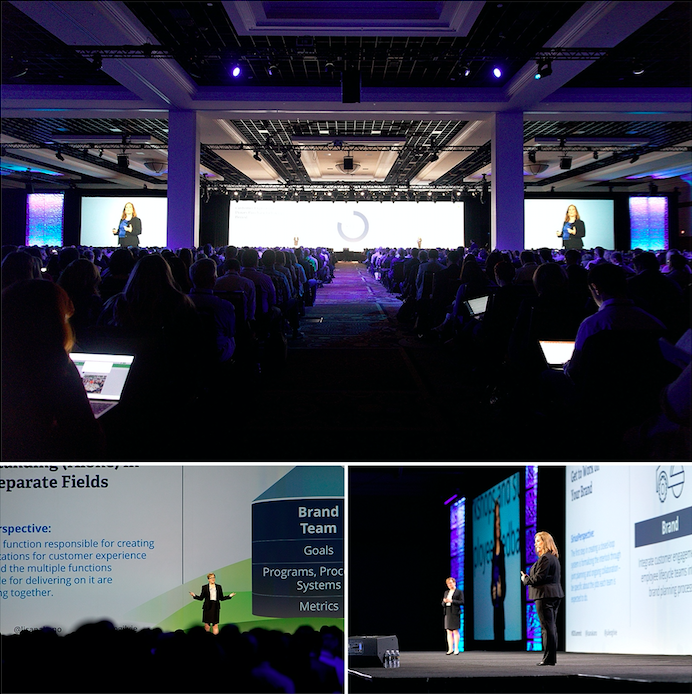SiriusDecisions Debuts New Matrix To Help B2B Companies Accelerate AI Applications For ‘High-Def View’ Of Audiences
- Written by Andrew Gaffney
- Published in Industry Insights
Despite the buzz around artificial intelligence (AI), many B2B organizations have been slow to adopt and deploy AI-powered applications due to a limited understanding of the technology and how it can impact all areas of the revenue engine.
During its Summit in Las Vegas this week, SiriusDecisions debuted a new matrix framework to help companies better understand the four categories of AI, as well as use case examples and guidance for advancing their AI journey.
In a session, titled: Building The (Artificially) Intelligent Revenue Engine, SiriusDecisions’ Monica Behncke and Kerry Cunningham explained that since data is perceived as a dependency for AI, many B2B companies have been hesitant to start their AI journey until after they have optimized their data. However, Behncke pointed out that “organizations already using AI to perfect their knowledge of their audience have a competitive advantage over less advanced organizations.”
Cunningham pointed out that intelligence on buyers is quickly emerging as an imperative to apply AI. “You should be developing a high definition view of your universal buyers. In most cases, the best way to do that is going to be to use AI to evaluate thousands of data points to develop that really great high-definition view of your buyers.”

He added that many companies have elected not to experiment or use AI yet because they think their data is bad and they are first prioritizing a separate project to fix it. “That’s the wrong order, because AI is the way to fix your data,” Cunningham said. “The best tool for fixing your data is going to be one that’s driven by third-party data. Mostly everything there is to know about your customers is third-party and not your own data to start with. When you combine those things, you have this high-definition view of the customer.”
AI Applications Already Making An Impact
Behncke and Cunningham highlighted use cases for how AI is already impacting B2B revenue engines. The analysts showcased PureStorage, which has adopted an AI solution for automating content tagging, enabling personalization and web visitor profiling at scale to drive content engagement.
They also showcased Mulesoft, which is using an AI application to optimize its sales efforts to harvest contact data and attach it to accounts and opportunities, which enhances both the audience and the tactic performance repositories.
Cunningham explained to Demand Gen Report that most B2B organizations still lack formal reporting and intelligence on what works in terms of their digital marketing and their human-led sales and SDR teams. “Most companies are absolutely operating blind with this respect to what really works and that has been out of necessity. It’s been difficult to get that data. Sales people don’t enter data into CRM. Your digital marketing tactics are notoriously hard to tie back to results at the end. There are applications of AI right now that can resolve all of this.”
Behncke highlighted one application vendor, Idio, which is helping B2B organizations track behavior of key audiences while they are on their website. “A lot of our clients still say, ‘I’d love to do more sophisticated scoring of prospects when they're on our website, but we don’t really know what our assets are about. We are not tagged properly, and we don’t stay up on that,’” said Behncke. “You can fix that with AI and have AI read your website to track what’s going on with key segments and target buying groups.”


